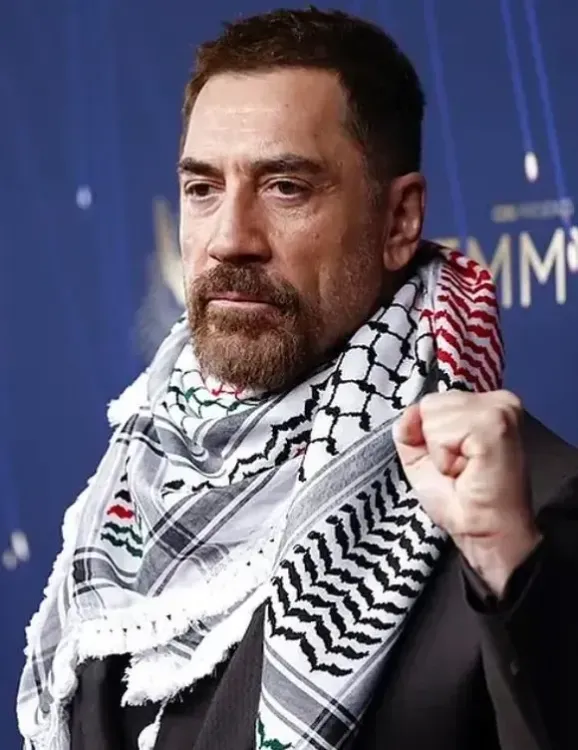Why is Javier Bardem Supporting Film Workers for Palestine?

Synopsis
Key Takeaways
- Javier Bardem advocates for accountability in the film industry.
- Industry leaders are increasingly supportive of Palestinian rights.
- The boycott targets Israeli film companies implicated in humanitarian violations.
- Legal concerns arise regarding discrimination laws in the U.K.
- The movement reflects a growing sense of ethical responsibility among artists.
Los Angeles, Oct 19 (NationPress) The 'No Country for Old Men' actor Javier Bardem has made his political stance abundantly clear. Recently, he voiced his support for Film Workers for Palestine.
His comments highlighted his stance on Palestine, which has suffered severe destruction due to Israeli actions, as reported by 'Variety'.
In a statement to CNN, he emphasized, “Regarding the pledge from Film Workers for Palestine, I want to clarify that we do not discriminate against anyone based on their nationality, race, religion, or gender. We firmly believe that any form of discrimination is unacceptable and we continue to express this.”
He elaborated, “We advocate for holding organizations and institutions globally accountable for their roles in the genocide of the Palestinian people in Gaza and the unlawful settlement of the West Bank.”
As noted by 'Variety', in September, over 3,900 industry figures signed a pledge to refrain from collaborating with Israeli film entities involved in actions termed as genocide and apartheid against Palestinians.
This list features notable filmmakers and actors such as Bardem, Yorgos Lanthimos, Ava DuVernay, Adam McKay, Emma Stone, Olivia Colman, Ayo Edebiri, Lily Gladstone, Mark Ruffalo, Hannah Einbinder, Peter Sarsgaard, Aimee Lou Wood, Paapa Essiedu, Gael Garcia Bernal, Riz Ahmed, Joaquin Phoenix, Nicola Coughlan, Andrew Garfield, Harris Dickinson, Bowen Yang, Rooney Mara, Guy Pearce, Jonathan Glazer, Ebon Moss-Bachrach, Fisher Stevens, Abbi Jacobson, Eric Andre, and Elliot Page.
In October, U.K. Lawyers for Israel sent a cautionary letter to major studios like Netflix, Disney, Amazon Studios, Apple, and Warner Bros. Discovery, indicating that the boycott contravenes the U.K.’s Equality Act and could affect funding and insurance.
The letter asserted, “(The Equality Act 2010) is the principal legislation in the U.K. safeguarding against racial and discriminatory practices. Should the U.K. film and television industry engage in actions contrary to this law, they risk being in violation themselves.”
“This also sets a perilous precedent that endorses the exclusion of individuals and/or organizations purely based on their nationality, ethnicity, and/or religion,” it concluded.









